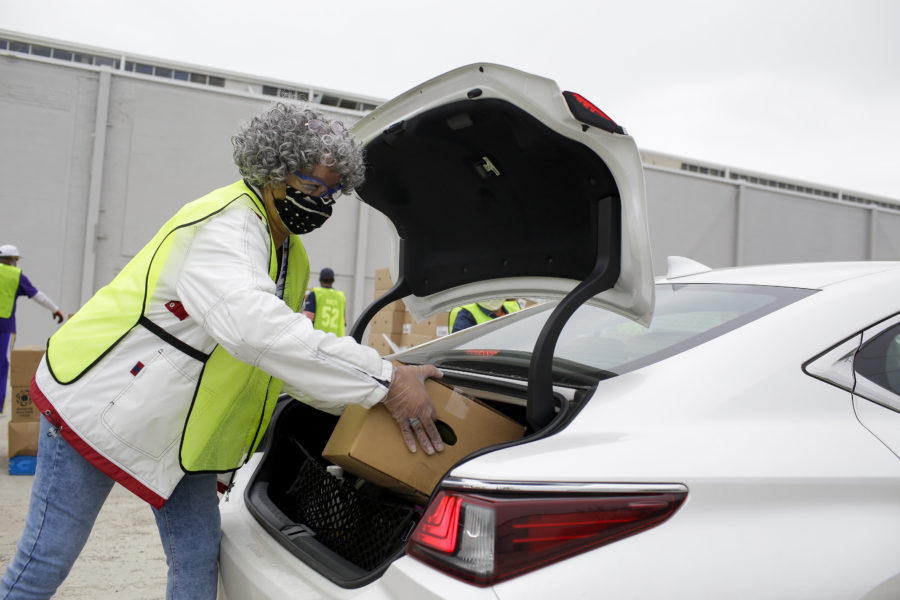The COVID-19 pandemic highlights food insecurity in communities of color. As a result of the pandemic, there is an increase in hunger in Cook County. There is also a lack of accessibility of affordable and nutritious food in black and brown communities. The economic effects of the pandemic are devastating. Greg Trotter, Associate Director of Communications for the Greater Chicago Food Depository (GCFD), discussed the continued food insecurity crisis.GCFD started in 1979 and currently serves and feeds Chicago and Cook Country residents. The GCFD has a network of hundreds of food pantries, soup kitchens, and shelters. They are also a part of Feeding America’s national network of food banks.
Looting also plays a massive role in the food insecurity problem in specific communities. Damaged businesses shut down because of looters. In the neighborhoods where most of the lootings took place, the only grocery options were dollar stores and gas stations. In response, GCFD initiated pop-up distributions. They also established partnerships with faith-based and community organizations like Roseland Metropolitan Family Services. Over the summer, they opened a public distribution center that continues to service Cook County residents. The center is located at 235 E 103rd Street on Chicago’s southside. With the pop-ups, GCFD supplies and delivers food to their partners and help them organize distribution. Greg stressed how invaluable volunteers were. “They’re doing incredible, courageous work. Because of their work, we were able to distribute in areas like Roseland, Auburn-Gresham, Washington Heights, South Shore, Little Village, and Austin, to name a few. It’s important for us to partner with these groups that are part of the community’s fabric. This helps us assist communities more and expand food access. We [the depository] are not swarming in and trying to make things better. We’re working with these groups trusted in their communities.”
What are the next steps? The GCFD realizes that it’s not only about distributing food in many communities but also connecting people to benefits and other resources. Many people in these communities cannot get to their distributions due to a disability or other immobilizing illness. This underscores the need for home meal deliveries. GCFD is scaling up their prepared meals operation at their facility, which was a part of their plan before the pandemic.
Additionally, the GCFD wants the federal government to implement a 15% increase in SNAP benefits. They believe that SNAP is an essential frontline defense against hunger in this country. For every one meal that the food depository provides in Cook County, SNAP provides seven meals. “The SNAP program is important, especially during times of crisis like we’re facing now with the pandemic. Every community has people who are facing hunger. It’s not a rural or urban thing, but for whatever reason, it has become a political thing, and we do not believe that should be the case. No one should go hungry. By expanding access to SNAP, it will make it easier for people to qualify for and use their benefits, whether that’s in stores or online.”
Please contact the GCFD for food assistance. To help GCFD continue serving Cook County residents, consider donating, volunteering, or partnering with them. For more information, please visit their website, https://www.chicagosfoodbank.org/. Follow them on all social media using the handle @fooddepository.
Kim Durden is a food blogger and owner of Divine Dine Food Tours, the first and only Black, woman-owned food tour agency in Chicago. Visit her website at https://www.divinedine.online/. Follow and like her on Facebook and Instagram.
